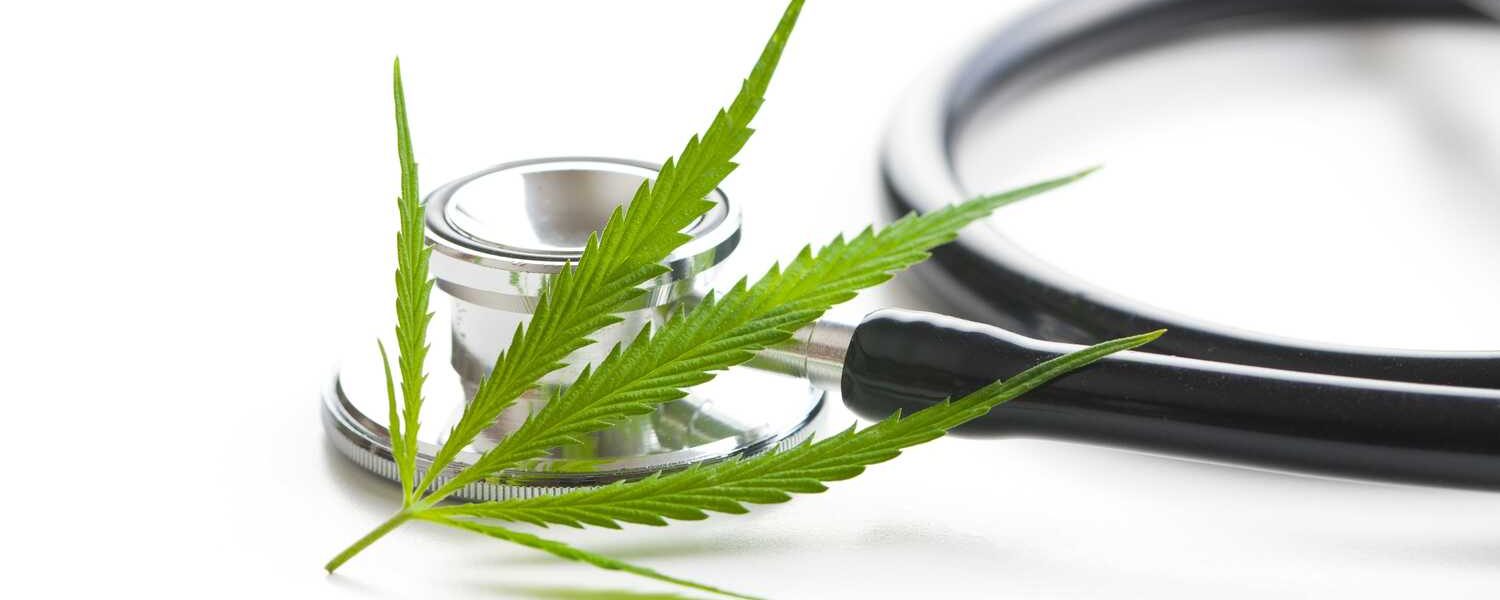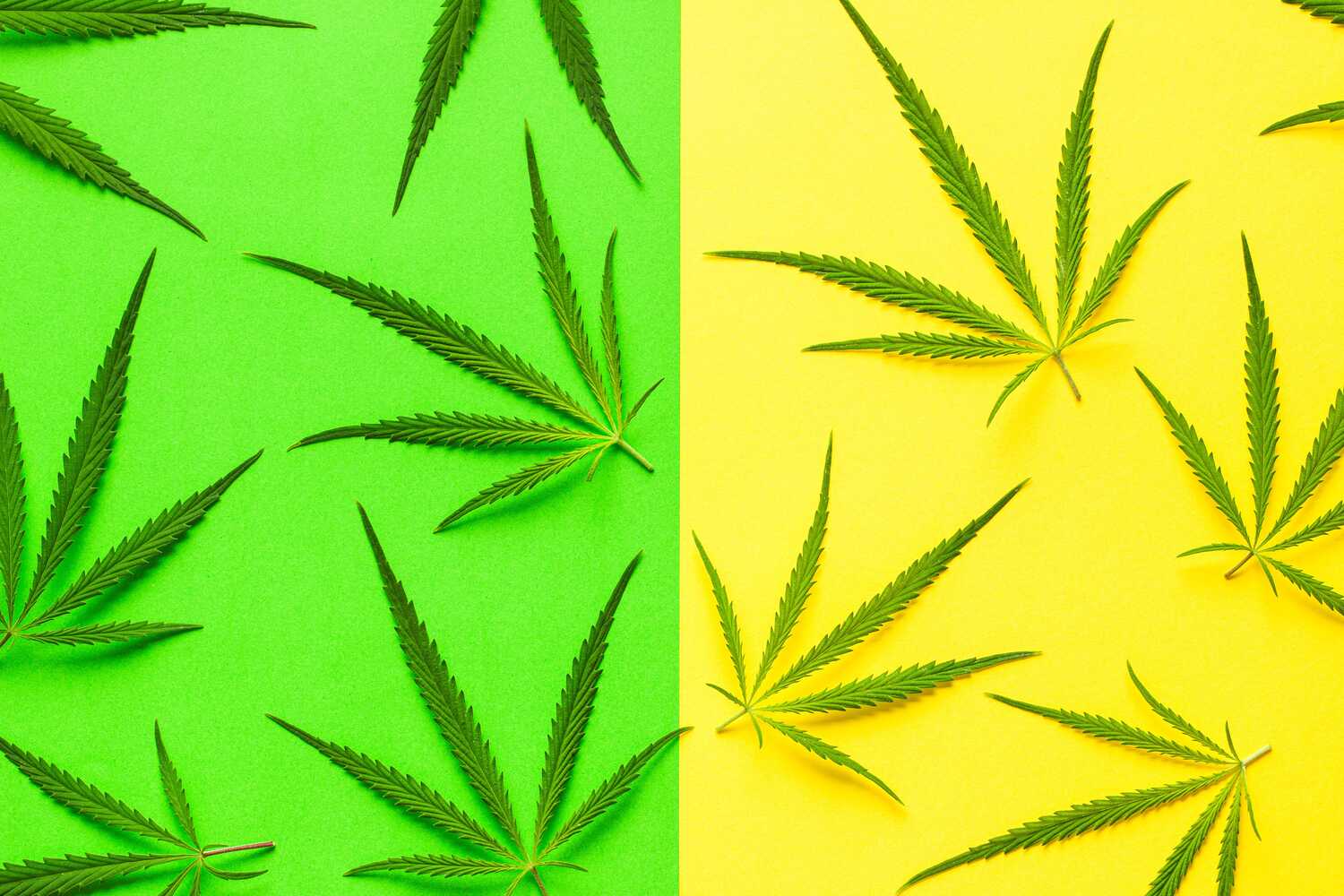Medical Marijuana vs. Recreational
- John DiBella
- Published: May 2, 2024
- Fact-checked by Dr. Desiree Granados

In recent years, the conversation around marijuana has evolved dramatically, with a distinct line being drawn between medical and recreational cannabis. Both types of weed offer unique benefits and involve different laws, and each has its own proponents.
In this article, we’ll explore the similarities and differences between medical and recreational marijuana to enable you to make informed decisions about the cannabis you consume.
What Is Medical Marijuana?
Medical marijuana refers to marijuana used to treat a medical condition. It comes in a variety of forms, including dried flower, edibles, tinctures, topicals, and concentrates. Medical marijuana is used to treat a multitude of conditions, including chronic pain, cancer, multiple sclerosis, and epilepsy. To date, 38 states and Washington D.C. have legalized it.
What Do People Use Medical Cannabis For?
The therapeutic applications of medical marijuana are vast. Some of the most common conditions for which medical cannabis is used include:
- Chronic Pain: A significant number of users rely on medical cannabis for relief from chronic pain that stems from other conditions, such as arthritis and fibromyalgia.
- Anxiety and Depression: Cannabis is known to have calming effects that many find beneficial for the management of anxiety, depression, and other mental health issues.
- Epilepsy: CBD has been found to be effective at reducing the frequency of seizures in individuals with epilepsy, particularly in cases that are resistant to traditional treatment methods.
- Multiple Sclerosis (MS): Cannabis is often used to alleviate symptoms of MS, such as muscle spasms, pain, and fatigue.
- Cancer-Related Symptoms: Many cancer patients use medical cannabis to help manage the nausea and vomiting associated with chemotherapy, as well as for appetite and pain relief.
- Glaucoma: Though more research is needed to confirm its efficacy for this condition, some individuals use cannabis to reduce the intraocular pressure associated with glaucoma.

What Is Recreational Marijuana?
Recreational marijuana refers to cannabis that is meant for the user’s enjoyment rather than for health-related purposes. Unlike medical marijuana, which is prescribed by a doctor to treat certain medical conditions, recreational marijuana is used for its psychoactive and calmative effects.
Today, recreational cannabis is legal in 24 states. Where legal, it can be purchased from licensed dispensaries by individuals of legal age, typically 21 and over. Common recreational marijuana products include dried flower, vapes, and edibles.
What’s the Difference Between Medical and Recreational Marijuana?
Some of the most notable differences between medical and recreational marijuana include:
- Access and Availability: Medical marijuana requires a prescription or authorization from a healthcare provider. In addition, in most medical use states, minors can obtain MMJ cards with the help of a qualified caregiver, whereas minors cannot obtain recreational cannabis.
- Regulations and Taxes: Medical marijuana often carries fewer taxes than recreational marijuana.
- Potency and Composition: Medical marijuana often contains more CBD and can be designed to address a specific medical condition, while recreational products typically emphasize THC content to generate strong psychoactive effects.
- Packaging and Labeling: Medical marijuana products are typically required by law to have detailed labeling that indicates dosage, cannabinoid content, and potential side effects, whereas recreational products aren’t always subject to such stringent labeling requirements.
- Medical Supervision: Patients who use medical marijuana typically receive ongoing supervision from their healthcare provider.
Is There a Difference in Quality Between Medical and Recreational Marijuana?
Generally, both medical and recreational marijuana must pass a series of tests to ensure they’re free of harmful contaminants such as pesticides, mold, and bacteria. However, medical marijuana products are subject to stricter regulations and more rigorous testing. While recreational products’ quality can be comparable, they sometimes contain contaminants like pesticides or heavy metals.
Is There a Difference in Price Between Medical and Recreational Cannabis?
Generally, medical cannabis is priced lower than recreational cannabis. This can be attributed to several factors, including differences in how the products are taxed. Additionally, medical cannabis patients often enjoy access to discounts that recreational users don’t. That said, specific prices can vary by jurisdiction.
What Are the Advantages of a Medical Marijuana Card?
Some of the advantages of owning a medical marijuana card include:
- Legal Protection: A medical marijuana card provides legal protection for its owner, allowing them to possess, transport, and consume medical cannabis without fear of legal repercussions.
- Access to Dispensaries: A medical marijuana card grants access to licensed dispensaries that offer a variety of products tailored to treat specific medical conditions.
- Cost Savings: Many states impose lower taxes on medical cannabis than recreational weed, which can provide significant savings.
- Higher Possession Limits: Medical marijuana patients often enjoy higher possession limits than recreational users to ensure they can obtain enough cannabis for their treatment.
- Age Limitations: In many states, medical marijuana cards are available to individuals under the age of 21, whereas recreational use is generally restricted to those 21 and older.
Conclusion
In conclusion, while both medical and recreational marijuana serve important societal roles, they both offer unique benefits and drawbacks. Medical marijuana is cheaper and currently legal in dozens of states, but recreational cannabis is available without a prescription and can provide stronger psychoactive effects. Ultimately, the answer as to which better suits you will depend on what you intend to use cannabis for.
If you have a qualifying condition, the Sanctuary Wellness Institute can help you get started on your medical marijuana journey. We can connect you with a medical marijuana doctor and, if they certify you for one, guide you through the process of applying for an MMJ card in your home state.
Book an appointment with us today to find out whether you’re eligible for medical marijuana treatment.
States Where We Offer Medical Marijuana Card Services
How we reviewed this article:
- Kim Painter and Stephanie Watson (2024). Medical Marijuana: Benefits and Side Effects
https://www.webmd.com/a-to-z-guides/medical-marijuana-faq#091e9c5e8140f487-1-4 - Kerry Breen (2024). Maps show states where weed is legal for recreational, medical use in 2024
https://www.cbsnews.com/news/legal-weed-map-states/ - Allison Hall (2020). Minor differences: Rules for underage medical marijuana patients
https://www.spokesman.com/stories/2020/may/11/minor-differences-underage-medical-marijuana-patie/ - Carol Kokinis-Graves (2023). State by state sales tax on cannabis/
https://www.wolterskluwer.com/en/expert-insights/whole-ball-of-tax-multistate-sales-tax-on-cannabis - Dominic McKenzie (2021). Knowing the differences between medical and recreational marijuana
https://spectrumlocalnews.com/nys/hudson-valley/news/2021/06/24/the-differences-between-medical-and-recreational-marijuana - Compliant Packaging (2024). Medical Marijuana Packaging
https://compliantpackaging.com/medical-marijuana-packaging/ - Stacia Woodcock (2024). What’s the Difference Between Medical Marijuana and Recreational Weed?
https://www.goodrx.com/classes/cannabinoids/medicinal-vs-recreational-weed-marijuana - Walt Hickey (2014). Medical Marijuana is Still the Best Deal on Pot in Colorado
https://fivethirtyeight.com/features/medical-marijuana-is-still-the-best-deal-in-colorado/ - Kyla Russell (2024). Where is marijuana legal in the US? A state-by-state guide
https://www.nbcwashington.com/news/national-international/where-is-marijuana-legal-in-the-us-a-state-by-state-guide/3493460/
Current Version
May 2, 2024
Written By
John DiBella
Fact-checked By
Dr. Desiree Granados
Editorial Process
Our Editorial Process

John DiBella is the co-founder and CEO at The Sanctuary Wellness Institute. His goal is to foster healthier lifestyles to improve individuals’ quality of life and health span through online medical and non-medical services. When he’s not writing health & wellness articles for The Sanctuary, he enjoys hiking, camping, surfing and sailing.







